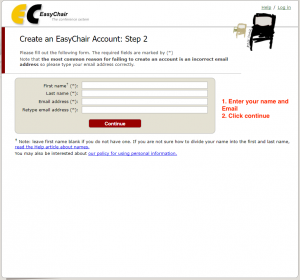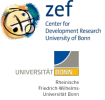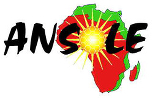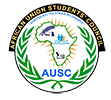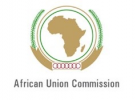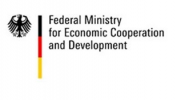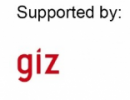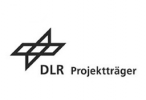NES COMMENTARY No.40
Network of Ethiopian Scholars (NES)
Title: Re-Imagineering and Revisiting Ethiopiawinet and Ethiopianism for our Time?
By Mammo Muchie: DST/NRF Research Professor, Tshwane University of Technology & TMDC, Oxford University, UK
Title: Re-Imagineering and Revisiting Ethiopiawinet and Ethiopianism for our Time?
By Mammo Muchie: DST/NRF Research Professor, Tshwane University of Technology & TMDC, Oxford University, UK
Abstract
It is Ethiopiwinet that promoted Ethiopianism and now let us re-imagine, learn, know and promote Ethiopianism to revitalize Ethiopiawinet by rejecting fully the ethnic divisions that should never have been planted of all places in the world in Ethiopia, the provider of spiritual strength for all the people of the world that suffered from slavery, colonialism and imperialism. It is the sacred duty of all of us to promote with Ethiopianism a new Ethiopiwinet where we all come together by valuing a dialogue culture to solve any problem and never at all using battles that bring war and killing to any Ethiopian anywhere at all. Let us work together to realize fully to treat each other as one family and not as relatives or strangers by promoting true values and principles that refuse to support ethnic cleavages. Let us all work to love our people and Ethiopia as a united community where we all believe better to hurt myself than hurting any other Ethiopian by including all the ethnic communities without any exception. I myself truly believe that better “I, Mammo die than seeing any Ethiopian or African die, any Yoruba, Ibo, Amara, Oromo or any Tigre or Eritrean or any Gurage and all die!”(Mammo Muchie). Let us value the rich spiritual a, knowledge and struggle heritages to promote a great go civilization now also as in the past by making sure Ethiopiawinet anchored unity is the foundation to make us all go forwards and onwards. Let us learn to agree how to promote a dialogue culture and peaceful and intelligent debate never again to reduce Ethiopia to any ethnic fracturing. Let us work for a new Ethiopiwainet civilizational Manifesto. Ethiopianism had two Manifestos: the first in 1829 and the Second five months after the Great African Adwa Victory in 1896. Let us create the Ethiopiwinet for Ethiopianism and the Ethiopianism for Ethiopiwinet Manifesto in 2018. All are invited to join no matter what politics they follow and what political party they support at the moment. Let us work to produce the politics that will promote Ethiopia to live forever and ever with a vision to create the Ethiopwinet national character based entirely on two values: to promote the learning, the sciences, the arts and the knowledge of all the people of Ethiopian without any exception and to promote the wellbeing of the people by making sure no Ethiopian is a beggar and goes thirsty and becomes shelter less and the environment is safe and life enters into a civilizational dynamics. That must be captured in the Ethiopiwinet for Ethiopianism and conversely for Ethiopiawinism for Ethiopiwinet Manifesto! This is a call for all of you to move away from the ethnics traps and re-discover and re-imagine a new Ethiopia that can become a true model and example for creating a civilization and spiritual anchored world at a time when the world is facing true challenges of where it is going.
1. Introduction
There is an intrinsic merit to preserve Ethiopianism and Ethiopiawinet for our time, and not give in to the degrading mantra of ethnic enclosures that has degraded civic Ethiopian citizenship to a particularly virulent and limiting concept of the currently ethnically defined and vernacularly fenced off citizen. This primordially and biologically defined ethnically fractured citizen must be fully liberated to emerge as the Ethiopian citizen par excellence with full human rights, self-worth, dignity, independence, agency and with the freedom to self-organise, self-express, self-define and self-believe, self-realize and self-develop as an Ethiopian citizen without diminishing any and all the human rights regardless of language, ethnic origin, religion, gender and any other varieties and diversity. Difference or diversity is no liability, and with Ethiopiawinet, diversity can be an asset and Ethiopianism, as a global resistance to colonialism and imperialism was founded upon Ethiopiawinet. Human rights come first and it is a marker of our similarity that we all should celebrate. Differences and diversity we should appreciate and see them as values to enrich our humanity. There should be therefore no compromise on the Ethiopian and African foundationally anchored framework for citizen full human rights expression and engagement. Everything is negotiable once the foundational framework of Ethiopiawinet for full human rights expression is accepted. There can be no negotiation with those who arrogantly and impudently call Ethiopia a fiction and an invention and recently even change the bible to remove the name Ethiopia despite the fact Ethiopia describes the whole of Africa and the Indian Ocean and even more regions of the world. Without the idea of Ethiopia, there is no idea of a future for all those living in the current day geography that delineates current day Ethiopia
Key questions we all should address especially by all who play the current ethnically tarnished politics are the following:
1. Can the current ethnically fractured organizations share Ethiopianism and Ethiopiawinet and create a united front on values and principles they share and agree whatever differences they have?
2. Will the current ethnically absorbed regime come out of its ethnic politics and adopt Ethiopianism for pan-Africanism and the African Renaissance and Ethiopiawinet for unity of all Ethiopians ad the realization of their full human rights away from the fractured ethnic divisive rights?
3. How can the current missing political movement, that upholds the wider Ethiopiawinet foundational anchor for full human rights expression, be created?
How can the currently ethnical agitators by cashing in on their ethnic-vernacular group identity become sober appreciating the need to unite the people of Ethiopia as nothing else but to evolve as one humane family benefiting and humbly appreciating the rich Ethiopiwinet history of proven resistance, philosophy, humanity and civilization?.
.
2. Ethiopianism
Ethiopianism promoted African for Africans, Africans for humanity and humanity for God. The slaves that were denied both their humanity and their right to worship God as humans found solace and comfort by looking at Ethiopia to have and express with confidence and self-worth their right to be human and worship and open access to God. Both in America in 1829 and in Southern Africa in 1896, two Ethiopian Manifesto's expressing these rights to be African, human and the right to worship God were created. No nation in this planet except Ethiopia had this distinction, grace, opportunity and recognition. We ask now how much do current day Ethiopians know that Ethiopia has this special spiritual quality bestowed upon it in this planet. Are those who have not come across to know this extraordinary recognition of Ethiopia as a spiritual fountain head for liberation of Africans in particular and all the oppressed in the world in general now ready, open and willing to learn and even more apply this powerful fore bearer of Pan-Africanism to solve all the current problems Ethiopia faces by adding spiritual value and strength to deal worth all the unending and lingering material difficulties such as poverty, inequality, unemployment, corruption, failure in leadership, governance, systems , institutions , services and values of care and share to move Ethiopia on a forwards and onwards confident and independent journey. Ethiopianism is a spiritual fountainhead to unite all Ethiopians to make sure they all acknowledge, appreciate and unite that the Ethiopia they have today has had global appreciation as a great treasure for all humanity that have gone through difficult times. Hurting Ethiopia today is tantamount to nothing else than to undermine this spiritual legacy that Ethiopia gave to the world. The early signs of Ethiopianism date back to the 16th century, when slaves in America found solace in the promise of a homeland in the empire of Ethiopia in the Nile region. The references to Ethiopia in the Bible ("Ethiopia" occurs more than forty times) provided them with an ideology that they could use for their spiritual, political, and cultural uplifting. By far "probably the most widely quoted verse in Afro-American religious history"--is Psalm 68:31: "Princes shall come out of Egypt; Ethiopia shall stretch her hands unto God". The verse was interpreted as pointing to the end of the "curse" on the black race--an end to the alienation of Africans as humans from God. This was a European belief that was, to some extent, shared by Africans. Thus came into being the movement of Ethiopianism as a "method of winning Africa for Christ and God", and as a forerunner of the "Africa for Africans”, "Africans for humanity" and "humanity for God" movement and the subsequent African philosophies to develop African unity to confront imperialist power. The verse gave rise to what scholars have termed "a biblically-rooted pan-African hermeneutic" that later became a widely used source of inspiration and legitimization to inspire Africans to continue the struggle against colonial domination. Some saw the beginning of the fulfillment of this prophetic verse on the political level. For example, after the 1792-1800 successful slave insurrection in Haiti, it was declared: "Thus doth Ethiopia begin to stretch forth her hand, from the sink of slavery, to freedom and equality" (Dread History, undated). In both America and Southern Africa, the Ethiopianism movement was firstly a reaction to the discrimination in ecclesiastical administration and the outright marginalization of black clergymen for no other reason than the color of their skin. It was an unwritten law by white missionary churches not to ordain black clergy. The fact this discrimination took place in locations as far apart as America and South Africa over a long period of time is proof that it was more a systemic practice than a symptom of sporadic racism. The relevance of the Ethiopianism movement, philosophy and the 1829 and 1896 two manifesto's to current day Ethiopia is to move without fail by making a paradigm shift from ethnic politics to Ethiopiwinet . Ethiopianism was also reinforced by the 1896 decisive African Adwa Victory over World Empire, as Raymond Jonas rightly put it. The fact that the 1896 Ethiopia Manifesto originated during the time of the battle of Adwa makes also this great victory part and parcel of the Ethiopianism movement. We should all work to make sure that Adwa will be recognized finally not just as a place of an ant-colonial successful battle, but more importantly also as a historical heritage site to spread vast pan-African education across the entire Africana world for years to come now and the future. Ethiopianism is said to have gone to the extent where all non-European peoples have been defined as Ethiopians. It is a grand philosophy where all the oppressed people are defined by the only Ethiopia that was never colonized despite being colonially attacked many times. It is now seen very relevant for promoting pan-Africanism and the African renaissance
3. Ethiopiawinet
Ethiopiawinet has been expressed with a long memory of resistance that all the various linguistic groups in Ethiopia expressed by uniting and struggling together. The 1896 great Adwa Victory was an expression of unity and the result of Ethiopiwainet. The Ethiopianism movement globally should reinforce the Ethiopiwinet to unite all Ethiopians with their full human rights also inside Ethiopia. Failure to defend Ethiopia’s history, is also a failure to live up to the worthy expectations of all those who derive so much spiritual energy from the idea of Ethiopia as a free provider to the world of the ‘resistance-liberation logocentric imagination’ that is much needed as a tangible resource still in vulnerable and penetrable Africa.
Ethiopia is synonymous with the very idea of a de-colonizing imagination. Its history of successful resistance is the timeless bearer of this alternative decolonizing logo for the spread of the African world’s liberation imagination. Ethiopia- as an anti-colonial symbol- is very relevant today, as it was yesterday and will be too in the future. The significance of Ethiopia’s history now, at a time when Africa is being re-threatened with the scramble of Africa needs to be appreciated. Its importance during this time when the former colonial powers are returning to Africa with military aggression cannot be lost to both those willing to resist the new aggression and those who commit this latest aggression. At the core of Africawinet is this Ethiopiawinet that helped all Ethiopians to unite and resist together. It is Ethiopiawinet that created Ethiopianism globally. It is not only Ethiopianism but also Ethiopiawinet that is at the core of the African renaissance. It is also at the core for ending Africa’s repeated humiliation. This is because African unity can be anchored with a value and dignity that Ethiopiawinet attained over 500 years of resistance. This achievement by the Ethiopian-Africans that resisted all forms of humiliation is a positive data for building Africa’s united future and to bring back the African unity first agenda to the fore today. It is for these reasons we respect our ancestors, whatever their shortcomings, and problems they were unable to solve in their life times and left behind for future generations to settle. They left the timeless inspiring resources to build Africa’s united future. The positive data they left us in the Ethiopian history remains to this day a relevant asset to build Africa’s much united future. Ethiopians now and in the future must always value and treasure this great historical achievement and not play the current ugly, divisive and cynical ethnic games that the selfish ruling elite play by dividing and degrading this core provider of Africa’s overall liberation imagination into vernacular-ethnic enclaves. Ethiopians as Africans and not as degraded ethnic enclaves must unite and strive to make ethnicism as a past by coming together with foresight and sense of history. They should do it now and not tomorrow to restore the historical imagination that will make a difference to the Africana world as a whole!
Ethiopiawinet should be built and developed from the following characteristics Ethiopia has to this day:
b) An internally generated civilization (written, art, architecture, music, religion and so on),
b) An internally generated civilization (written, art, architecture, music, religion and so on),
c) A history of resisting and scoring victories against economically and politico- militarily superior forces,
d) A unique psychological makeup where the notion of the divine and the sacred graces every activity that the people engage in.
The individual, the state and the nation use for their lives divine presence whether they are Christians, Muslims, Judaic and even Pagans. The state had its own ethos and had its own ‘Fetah Negist’ and ‘Kibre Negist.’ In war we note how the idea of the divine is invoked to give courage to the troops when they charge (e.g. Giorgis’s participation in Adwa!) and in victory the people show humility by referring that all their power is due to God.
Whether we like it or not religion is a way of life to the rural majority of the population. And the change we want, the modernisation we seek is to make life better for the majority of the rural areas. We do not go and preach Jeffersonian democracy or Marxism to them. If we are serious we go and learn from them and build on their beliefs and make modernisation sensible by translating it into the language and way of life they are used to. This is how Japan, Korea and others did it by appreciating their context but not rejecting it like the strange ruling elites that replaced the traditional system are doing now!
Even China with its Marxism did not reject Menicusian, Confucian, Taoist and Buddhist values which the population had. They tried to Sinnify their modernist weapon Marxism so that the people can embrace it. Like everything else which came into contact with China, Marxism became absorbed rather than the other way round! They call it Marxism which Chinese characteristics and in reality in China Marxism was not used like in Ethiopia. Mao Tse Tung started by investigating first the peasant movement in Hunan where he was born, not by throwing half-baked and non-comprehended phrases from Lenin and Stalin. He did not select phrases that insult to persecute and even kill his comrades as it happened in Ethiopia. Never forget in Ethiopia after people were killed, the strangest things also have taken place where apparently along with the dead body was placed ‘I was a dog’ and I deserve to be killed — or some strange an-Ethiopian and anti-humane things were done! When a person dies in Ethiopian culture, one always tries to remember the good the person did by trying to forget the bad the person did. This is the noble culture that was inherited from Ethiopia’s past that was abused by doing these strange things to dead bodies!
There is an Ethiopian value system from our tradition that we need to bring back and blend with modernisation. The core ideas are the four key principles of Ethiopiawinet. We need to treasure them, not fight Ethiopiawinet! What makes the person from the South to those in the North connect mysteriously is this shared experience which was passed on from the wider Ethiopian culture confluence and communication.
4. Acknowledging Generational Mistakes
Our generation was very dedicated, committed but we were engaged in intellectual copying. We ignored both history and reality, lacking knowledge about Ethiopianism in general- and we have embarked on a journey that has cost Ethiopia dearly. Basically we said because Marx, Engels and Lenin are right, The Ethiopiwinet upholding leaders coming from different ethnic backgrounds such as Emperor Twedros, Yohannes, Menelik and Haile Selassie are wrong. This was a very dogmatic logic, ignoring both historical evidence and reality. Did we not pay a price badly for this? We still do. We better ground ourselves in our own history, our own challenges and how to change society by a process of grounded appreciative theorizing. We did not do this. We need to bring back the anti- colonial and anti- imperialist and nationalist imagination coming naturally from Ethiopia’s history that continues to be treasured by Africans the world over with the continuous promotion of Ethiopianism as Pan-Africanism and the African renaissance...
Our generation rejected this by mounting two major myths: a) the Dergue employing Jacobin-Stalinist terror tried to force its hackneyed “Marxism” down the throat of the bewildered population, b) the various ethnic based fractional movements echoing rhetorics from China, Albania, Vietnam and so on tried to create ideologies of Tigreanism, Eritreanism, Oromoism and recently Amharism and anything and everything but Ethiopianism. They even have ethnic flags. We have many flags in Ethiopia now, not one flag that I see every day also in much of Africa and the rest of the world. Others are proud to use the Ethiopian flag, whilst the ruling ethnic elite diversify the number of flags to entrench ethnicism and undermine Ethiopian history.
Ethiopia is in a strange paradox: Ethiopia reminds me of Witgestein’s prescient remark of a nation being run by elites who are trying to disrupt its future by climbing through the chimney and the window of ethnic fragmentation, when all along the Ethiopiawinet as the Africawinet door to build its glorious future has been wide open.
What is wrong with holding on and inheriting our Ethiopia and add development, eradication of poverty, creating full employment and equality without breaking the framework and subtracting the nation and parceling the state? Do we need to regress by relying on the politicisation of culture, language and blood to blackmail our way into power with Ethiopia as it is or by breaking it up altogether?
I believe the best and most possible cultural rights and expression for all the ethnic communities without subjecting them to ethnic cleansing and other violence is feasible with a healthy Ethiopiawinet for the full expression of all human rights. I do not see why we should not organise by affirming Ethiopawinet and maintain active local engagement wherever we come from. The key is to democratise the state, individual and the nation by affirming and not being condescending
to the past.
The theory of the nation which decomposes Ethiopia by weaving the myths of Tigreanism, Eritreanism, Oromoism and so on goes counter to the core experience of the people, their long history, tradition, character and above all their historically evolved nationhood and state formation. None of our earlier leaders the Ethiopiwinet upholding leaders such as Aste Twedros, Aste Yohannes, Aste Menelik, Aste Haile Selassie and their generals like Ras Alula and Aba Jiffar and all fought ethnically, they all resisted foreign aggression by expressing fully Ethiopiawinet.
The Lenin-Stalin notion of the nation which the fractionalisers have imported their divisive politics from to Ethiopia is too scholastic, mechanistic, and deterministic. Itemizing factors of language, territory, psychological make-up and unleashing every petty nationalist bigot to search how his ethnic group might fulfill one or the other factor in full or in part is one of the most unattractive ventures which corrupts science and social practice at the same time.
Neither the ethnicism of Tigreans, Oromos and so on and nor Stalin’s shopping list definition of a nation are relevant to the Ethiopian situation. They cannot be a higher reality to the experience of our people. An experience where there was injustice along with civilisation, a history of epic resistance and a unique psychological make-up involving the concept of the sacred in the everyday living of all Ethiopians. The attack on this divinely graced Ethiopianet ” wukabi gefafi new” (is de-spiritualising/demeaning!)!
It has been said that the longer we look back in the history of a nation, the further we can look forward or forge ahead in building a collective future. It has also been claimed that history is to a nation as a memory is to an individual. For an individual to lose memory is to lose a grip of reality. It has been a maxim held by African sages: ’They lost their history, so they lost everything.’ A nation, if it wishes to remain a nation must not be denied its right and indeed privilege to make a conception of
history that yields direction and a future and insulates it from falling into a directionless and chaotic path.
Arguably, contemporary challenges and demands must be taken into account into a nation’s history-making processes, but they must also be confronted to avoid the mindless rejection of Ethiopia’s historical achievements and the intelligent learning from the innumerable failures that is necessary to do individually and collectively as a people. Anything made at the expense of making a nation lose its historical identity, which is not, incidentally constituted from more than the sum of the arithmetic additions of a sum of languages, religions, territory, number of people in an ethnic group, and other variables is to undermine the ontological foundation of Ethiopia as an idea, a dream, project and nation.
Those who wish to opt out make not only themselves suffer, but also those who wish to remain with a positive and constructive rather than destructive and negative appreciation of Ethiopia’s long history. We have seen what came of Eritrea after leaving Ethiopia? We were told Eritrea would be
the South East Asian tiger, but is it that now? Is that what has become of Eritrea by the EPLF’s and TPLF’s gratuitous saying good bye to Eritrea’s core history which is tied with an umbilical cord with Ethiopia’s long social-economic history. History provides self-knowledge to a nation and that self-understanding is a necessary condition to undertake any meaningful development. Lack of consciousness of a nation’s history is not simply an intellectual failure. It can be a moral failure as it can expose unnecessarily a nation to unpredictable danger and suffering. We owe it to our ancestors who bequeathed a nation with history to avoid extremism, negotiate out of our conflicts, and find mechanisms to make social peace amongst individuals, communities and personalities.
5. Concluding Remarks
It is with a larger purpose and depth of thinking, commitment and dedication that we should cherish both the long memory and current meaning to us of being Ethiopian. There is intrinsic merit to preserve this ancient nation, and not give in to the degrading mantra of ethnic enclosures that has degraded civic Ethiopian citizenship to a particularly virulent and limiting concept of the ethnically defined and vernacularly fenced off citizen. This primordially and biologically condemned citizen must be fully liberated to emerge as the Ethiopian citizen par excellence. There can be no compromise on the Ethiopian and African framework for citizen expression and engagement. Everything is negotiable once the framework is accepted. There can be no negotiation with those who arrogantly and impudently call Ethiopia a fiction and an invention. Without the idea of Ethiopia, there is no idea of a future. Let us not forget that Ethiopia was the first non-European country that defeated a European power. The Japanese sent delegations to learn how Ethiopians organised to defeat a European imperial power. Many Africans in the Diaspora from America to the West Indies were inspired to continue the struggle for liberation owing to this historic achievement.
Finally Ethiopia can achieve by creating a dialogue culture far away from the current inter –ethnic wars to priortise above all else the wellbeing of all the people to make sure no Ethiopian goes hungry, no Ethiopian is poor, no Ethiopian becomes a beggar and no Ethiopian becomes shelter less or goes thirsty. We can build this opportunity by making sure we all galvanize the values and principles that the following key achievements have bestowed upon our beloved Ethiopia where we all must feel genuinely lucky to be born anywhere else but our Ethiopia.
Let us re-learn both the related
a) Ethiopianism
b) Ethiopiawinet
It is Ethiopiwinet that promoted Ethiopiannism not ethnicism. . Now it is Ethiopianism’s turn to promote Ethiopiawinet unity and help eradicate divisive ethnic politics by promoting human rights creating a win-win outcome for the wellbeing of all regardless of how varied the diversity and differences in language, religion, ethnic origin, gender and all.
It is time to do away with ethnic politics by the regime and those who oppose it using ethnic platforms and programmes... let the entire struggle be for Ethiopians and any ethnic injustice should be rectified with Ethiopiawinet and Ethiopianism.
Let us finally do away with ethnic politics and poverty by reaching out to all of us to realize the grand vision of Ethiopia’s historical presence to facilitate a united, peaceful, and prosperous and well-being anchored Ethiopia in the eternal river of time.The World fears time. Time fears history and history fears Ethiopia. Why? Ethiopia did not provide material help to the oppressed people of the world; it was able to provide spiritual public good to the world by her sheer presence resisting successfully all forms of colonial aggressions. This makes Ethiopia go beyond becoming a mere nation; Ethiopiawinet promoted Ethiopianism and now it is time for Ethiopianism to promote Ethiopiwinet to remove ethnic politics of all places being planted in Ethiopia. Both Ethiopiwinet and Ethiopianism together make Ethiopia a civilization, history and humanity combined. Ethiopia is not just history. It is not just civilization. It is not just philosophy. It is not just humanity. It is a great synthesis of all of them. It gave spiritual strength to, Africans to realise their humanity and their direct access to God. It is a great inspiration just by sheer sense of its very being becoming recognized as the provider of liberation resources to all humanity. Ethiopianism buttressed by her Ethiopiwinet history explains philosophically her historical presence as evidence providing so much spiritual strength, confidence, independence, self-worth, agency and freedom to those who were denied their humanity and their right to worship God as Christians. Ethiopianism remains relevant now also to continue the spiritual inspiration to all the oppressed that continue to suffer in a world that is driven by ideas that are ontologically shallow and epistemologically dry. Ethiopianism can help remove the epistemic vice of ethnic division to promote the epistemic virtue of unity with upholding the rich Ethiopiwinet that kept Ethiopia not to fall as victim to colonialism. Ethiopianism promotes pan-Africanism and the African renaissance through the Ethiopiwinet support it enjoyed throughout history. Let us go for both Ethiopiawinent and Ethiopianism, pan-Africanism and the African renaissance. No tribalism and no ethnics ever in Ethiopia and the rest of Africa. We are many that are united as one and let us not talk it, let us do it with peaceful, civilised discourse rather than using all the divisive politics that we keep mimicking from various sources. Let Africa with the Ethiopia that has given so much spiritual strength lives forever and ever!!!
5. References
AUSC Presidency's Special Advisor Professor Mammo Muchie shared important presentation on Innovation from Science, Technology, Engineering and Mathematics for an Integrated African Sustainable Development , Nigeria June 19th to 30th, 2017.
AUSC international leadership gives its intention to making the continent of Africa the best developed based on its academicians and innovators , especially young generations that are the only force for building the better Africa we all deserve.
During the upcoming 1st All Afrikana First Youth Congress which will take place in October 15th to 18th , 2017 in Kigali-Rwanda, all innovators and young intellectuals will be given opportunities to share their contributions to the achievement of desirable Integrated African Sustainable Development.
Prof. Mammo Muchie's lecture in 5th AfricaLics Ph.D. Academy on Innovation and Competence Building Systems. The academy is organised at Obafemi Awolowo University, Nigeria during 19th to 30th June, 2017
Lectures on Innovation from Science, Technology, Engineering and Mathematics for an Integrated African Sustainable Development.
Innovation System Approach: How Relevant is it to promote African Unity for Renaissance
Writing and Publishing High Quality Scientific Papers with Impact and feedback to research presentations by doctorate students from different African states..
from Nigeria
Some more pictures:
Dear Professor Mammo, Good to know that you safely arrived home.
More reading shared included
Reference below:
https://southernafrican.news/2017/06/05/africa-and-the-myth-of-the-philosopher-kings/
By Mkhosana Mathobela Bingweni
In terms of traditions of thought and leadership paradigms, Africa has been led by warriors, philosophers and the poets.
The leading African political scientist and historian, the late Ali Mazrui, dedicated a lot of his research efforts to the study of African leadership paradigms.
Mazrui described three important paradigms of political leadership in Africa namely the warrior tradition, the tradition of the philosopher kings and the tradition of the poet presidents.
In the warrior tradition African leaders saw themselves as later day warriors who were descendants of Africa’s ancient warriors and would lead their people and countries to battle against the colonial invaders.
The philosopher king tradition is peopled by presidents of Africa who saw themselves as brooding philosophers and meditating princes that would employ and deploy the stamina of their minds in the leadership of their peoples and countries.
The poet presidents were lyricists and poetic presidents who composed poems and songs as part of their leadership and imagination of liberation.
Unlike the British historian Anthony Hamilton Millard Kirk-Greene who wrote of African heads of state contemptuously as deluded natives that were seeking eternity, were eccentric and imagined themselves to be exemplary, Ali Mazrui carried out a sound investigation into and description of African leadership paradigms.
A study of the paradigms that guided African heads of state and their state of the head is important in that Africa cannot honestly navigate itself to the future without sound leadership and political paradigms.
It is the argument of this article that Africa’s leaders, whether in the warrior, philosopher or poet category became captive to the colonial paradigm of politics and leadership, they tried to liberate their countries from colonialism using colonial paradigms of power and leadership.
True to Friedrich Nietzsche’s observation that those who fight monsters should be careful that they do not become monsters, most African leaders who fought colonialism got infected by the colonial paradigm of leadership and became colonial leaders in black skins.
Enter the Philosopher Kings
It is ancient Athenian philosopher Plato who generated the idea of the philosopher kings in his mediations about the ideal republic.
Plato opined that unless society was led by philosophers, until those that were leaders became philosophers, there would be no end to society’s problems.
Plato believed strongly that people that were not philosophers should not be allowed near the leadership of their countries.
Plato’s imagined philosopher kings were also individuals that would have proven their abilities in the military and the arts of physical combat.
In Africa almost all the founding fathers, the first group of black rulers of Africa, came up with their own philosophies of liberation and leadership.
Kwame Nkrumah spoke of the philosophies of consciencism, the African Personality and Pan-Africanism. Julius Nyerere came up with ujamaa or African socialism.
Kenneth Kaunda of Zambia preached the philosophy of humanism as a paradigm of liberation and political leadership. Amicar Cabral was another celebral leader who circulated a lot of political and philosophical aphorisms.
It is to Cabral’s desk that we owe such political ideas as “tell no lies, claim no easy victories.”
Thandika Mkandawire has observed that the founding fathers of Africa even if they were not true philosophers found themselves pretending to be philosophers to the extent that some of them mistook slogans and other incantations as philosophy.
Mobutu Joseph Seseseko of Zaire came up with the philosophy of authenticity under which he banned European names in Zaire, any parent that gave their child an English or French name were immediately arrested and punished for not being authentic Africans.
For all his philosophy, at some point Kwame Nkrumah as life president had more political prisoners in his jails that apartheid South Africa.
Julius Nyerere became infamous for the contempt he had for ethnic groups, he is credited with coining the phrase “the tribe must die so that the nation can live.”
In that way ethnic consciousness was called tribalism, false consciousness and was banned in Tanzania.
Kaunda also perfected the science of detention without trial of some of his political opponents, notwithstanding that he was a self-proclaimed humanist.
No matter the sophisticated philosophies and grand concepts that they coined, African post-colonial leaders found themselves reduced to enemies of the people that they intended to liberate.
The African liberators became African tyrants.
Ali Mazrui suggested that post-colonial social and historical conditions in Africa did not permit democratic rule.
Other scholars have argued that Africa after the colonial experience needed benevolent dictators because revolutionary change cannot be achieved without a strong man or strong woman in the leadership.
I believe that in the process of fighting colonialism African leaders of the liberation movement unconsciously absorbed colonial ways and sensibilities from the oppressor that they were fighting.
Paulo Freire described how the oppressor consciousness can easily infect the oppressed to the extent that they see the world and live their lives in terms that are defined by the oppressor.
There is a strong way in which the African post-colonial political and leadership paradigm mirrored and reproduced the colonial.
Ali Mazrui described how Kwame Nkrumah got into the struggle for liberation as a democrat and left as a tyrant and how he became “a great African and a terrible Ghanaian.”
While the rest of Africa celebrated Nkrumah’s Pan-Africanist vision, at home in Ghana the people were living in fear of the Nkrumah the ruthless dictator. Might it be true that social, historical and political conditions in post-colonial Africa makes democratic and consensual leadership impossible?
The Poet Presidents of Africa.
The poet presidents of Africa are exemplified in Agostinho Neto of Angola and Leopold Sedar Senghor of Senegal.
The two did not become poets when they were already in power but they got into the struggle for liberation through their poems.
These were the princes of the lyrical and the beautiful who believed that populations could be moved and charmed through song and poem. Even as he was the prince of the lyric and rhyme and reason, Agostinho Neto did not escape the label of tyrant.
In the view of Ali Mazrui, Senghor was poetic before he was political and showed more tolerance towards opponents than most leaders of his time.
The suggestion that Ali Mazrui makes is that political power does not only need philosophy or the very big ideas but it also demands a sense of the poetic and the beautiful, where the leader can charm his people through rhythm and rhyme, and get them to imagine better futures under his leadership.
The poetic tradition is directly opposed to the warrior tradition that believes in power and force Perhaps the ideal African head of state is one that will combine the warrior tradition, the philosopher king tradition and the poetic tradition, a balanced leader who knows when to be tough, who can philosophise and also serenade the population with pulsating poetry and oratory.
In Africa and elsewhere, oratory is an important leadership quality and the founding fathers of Africa became known for being fire eating orators.
Post-colonial Managerialism
The African founding fathers, those political leaders who took over from the colonial administrators after decolonisation entered leadership already with the seeds of their failure in their hands.
The paradigm of politics and leadership that they carried were still colonial.
The states that the leaders headed were still colonial states and the African leaders simply became managers of a colonial system that they inherited. Before anyone noticed our liberators had become our new oppressors in Africa.
These leaders, some of them, mistook simple slogans and ideological statements for philosophy and pretended to be philosopher kings when in actuality they were black managers of the colonial system which the new flags and new national anthems could not eradicate.
Sixty years after the first African country was delivered from juridical colonialism, Ghana in 1957, it is important for Africans to reflect on the myths and fictions of decolonisation and generate ideas and political paradigms that make a break from the colonial to the decolonial.
This might be the time for new political and leadership paradigms in Africa.
• Mkhosana Mathobela Bingweni writes from South Africa
Keep reading as well an open letter to King of Saudi Arabia with Reference below:
https://drive.google.com/drive/u/0/folders/0B4njnO0DQSkMMjFyTE1ScExHSHc
Wudu Tewdaju Wondimachin Ato Kidane.
I truly appreciate you took the initriative to write a letter to the king of the Saudis..
Be good we all support to make sure none of the Ethiopians in Saudi Arabia now are hurt.
I did a few years back when our sisters were being killed in the Middle East created a campaign to stop the killing of innocent Ethiopian maids.
How I wish we can all find a way to make Ethiopia the home where no one wishes to depart from it, rather all want Ethiopia to be their destination..
We need to find a way.. we must always remain positive.
Just returned from Cameroon, Kenya and Nigeria..Every where we see different issues, but Ethiopia endowed by so much of her own creations should not be in this situation we are in now.
We need to find solutions by finding a dialogue culture that works removing any form of killing one another.. No Ethiopian must be in danger. All of us should learn to have the rehabilitative and restorative justice (not punitive) to relate with one another. Better to hurt onesef rather than hurt another Ethiopian must be the shared value we all must share. We can revive the rich values to help us remove the borrowed politics from the 1960s that have remained imposed on the Ethiopia we should always proudly cherish, where all should have been happily living by now by making sure all Ethiopians own Ethiopia-period. If all Africans own Africa, trust me all Africans will be millionaires. We in Ethiopia too will have no more this unending curse of starvation from drought and other natural and social problems..
How I wish our organic intellectuals genuinely come together and find workable solutions that are practical and make a difference. There is reall work out there.... let us go for it..
Hope we can construct a new road that works for Ethiopians across wherever we are
Remain blessed and keep strong
With My Warmest best Regards,
Mammo
Approved on June 25th, 2017
Iraguha Bandora Yves
Founder and President of AUSC.
Kigali-Rwanda-East African Community (EAC).
www.africanunionsc.org
More readings for African Diaspora :
https://www.thenigerianvoice.com/news/253273/caricom-deals-a-blow-to-us-plans-for-regime-change-in-venezu.html
1st All Afrikana First Youth Congress-1st AAFYC2017
Http://www.africanunionsc.org/2017/09/your-answer-to-congress-preparation.html
Your Answer to the congress preparation "Could you please share a little how everything is going on ready for the conference in Kigali?",Updates from AUSC President and Founder' s Office in Kigali Rwanda;Friday September 29th, 2017, You can't believe what I'm seeing!, it's amazing, and awesome #1stAAFYSC2017 conference going to happen in Kigali Rwanda.
http://www.africanunionsc.org/…/ausc-international-communic…
Please Young Africans, Apply from here are your Opportunities for studying and networking abroad.
Please Share for others to join 1stAAFYC2017.
#1staafysc2017









